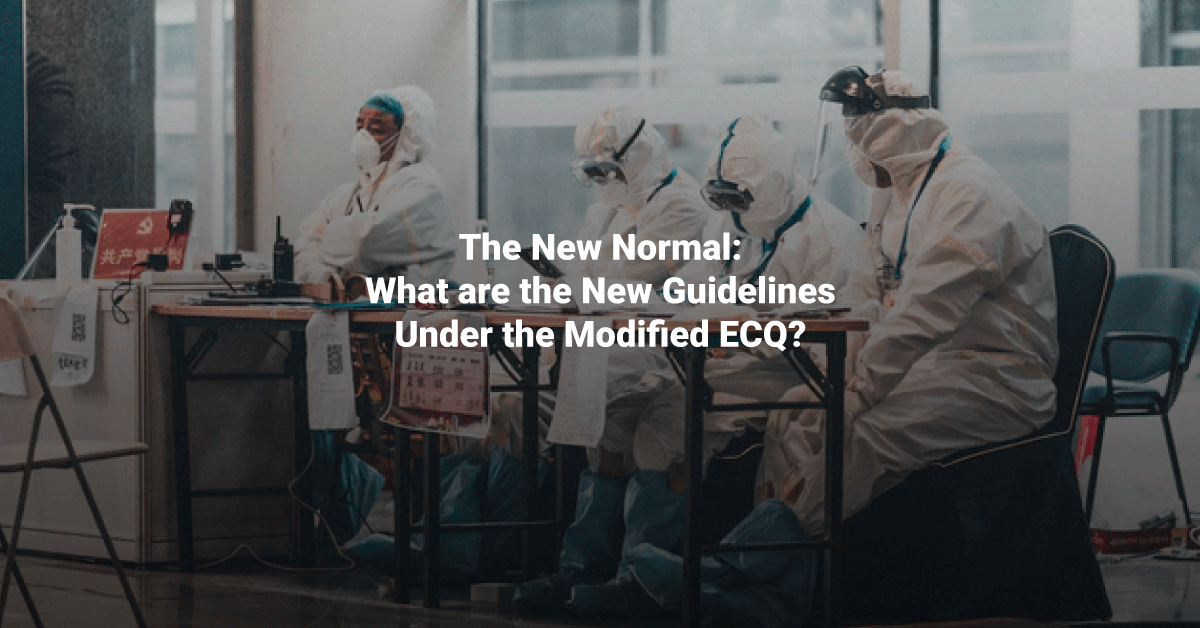After two long months of the enhanced community quarantine (ECQ) in Metro Manila, the government is now moving towards a less strict, modified version of the quarantine in the bid to restart the economy. On May 16, Metro Manila and surrounding areas were put under the modified enhanced community quarantine (MECQ), which still enforces strict stay-at-home orders but allows the opening of more industries and establishments.
As we continue to navigate this new normal of living at a time of a coronavirus pandemic, see how the more flexible quarantine measures can change your daily routine. Here’s what you need to know about the new guidelines to be followed in the metro under the MECQ.
Which industries are now open?
Essential industries and retail establishments that were allowed during the ECQ will continue to operate in full capacity under the MECQ. This includes banks, groceries, pharmacies, hospitals and clinics, food manufacturing and supply chains, and delivery services.
Some industries that were previously limited during the ECQ can now operate in partial capacity under the MECQ. Partial capacity means operating with a skeleton workforce of 50% of the total on-site. This includes manufacturing industries, film and music production, hardware retail stores, and clothing retail stores.
Mall establishments are also partially open for non-leisure shops like clothing stores, bookstores and office supply stores, electronic shops, and restaurants (for delivery and take-out services only).
Leisure establishments continue to be unallowed under the MECQ. This includes cinemas, fitness gyms, tourist destinations, and personal care services like massage parlors and barbershops.
Who are allowed to go out?
Like the ECQ, the MECQ still enforces strict stay-at-home measures but now follows more flexible guidelines as to who can go out for essential errands. High-risk individuals, such as individuals under 21 or over 60 years old, are allowed to go out to obtain essential goods if no other individual is available to act as a proxy.
Outdoor exercises like walking, jogging, running, and biking are now allowed, as long as individuals practice necessary safety protocols like wearing a mask and maintaining a two-meter distance. Contact sports like basketball and volleyball remain prohibited under the MECQ.
Which modes of transportation are allowed?
Only private vehicles will be allowed to drive, with strict maximum capacity guidelines to be followed. Private cars are allowed, as long as there is a maximum of 2 people seated per row. Motorcycles, scooters, and bikes are also allowed, as long as there is only 1 rider.
Public transportation like buses, taxis, and train lines are still unallowed under the MECQ. Shuttles for frontliners and employees of permitted industries may be allowed, provided that social distancing and precautionary measures are followed in the vehicle.
There are still no domestic flights and inter-island travel, while outbound international flights are limited. Inbound flights are limited and controlled, specifically for OFWs and returning Filipinos that are allowed to go home.
Are schools and government offices open?
School premises remain closed and physical classes are still suspended and cannot resume under the MECQ. Most government offices are operating in partial capacity, with a skeleton workforce of 50% of the total are on-site, while the others work from home.
Are gatherings allowed?
Only small and indoor gatherings for work, religious, and other essential purposes are allowed under the MECQ but are still highly restricted. A maximum of 5 persons are allowed in the gathering, and social distancing and precautionary measures must be followed at all times.
Leisure- and entertainment-related gatherings, like movie screenings, big parties, concerts, and sporting events are still not allowed. Outdoor gatherings like picnics are also prohibited.
Are these guidelines similar in all areas under the MECQ?
While these new guidelines lay the framework of the new normal in all areas under the MECQ, local offices are given some room to modify some guidelines to be more specific to their areas of jurisdiction.
In Quezon City, for example, tricycles are allowed to operate as the only mode of public transportation in the city. Health and safety protocols are still to be followed inside the tricycle, which can only take in one passenger who must be seated in the sidecar, not on the motorcycle behind the driver. Tricycles are also regularly disinfected to keep the vehicle sanitary and virus-free.
Under the MECQ, the quarantine guidelines may vary among individual barangays through a zoning scheme, depending on the barangay’s number of recorded COVID-19 cases. Barangays with several positive cases are considered “critical zones” and may be put under stricter ECQ measures or a hard lockdown. Those with fewer cases will be considered as “containment zones” with the more flexible MECQ measures.
Make sure to check with your local government to fully understand the level of quarantine that is enforced in your area. As our country continues to battle the coronavirus pandemic, always remember to be vigilant and practice the necessary precautionary measures, no matter what level of quarantine you are in.
